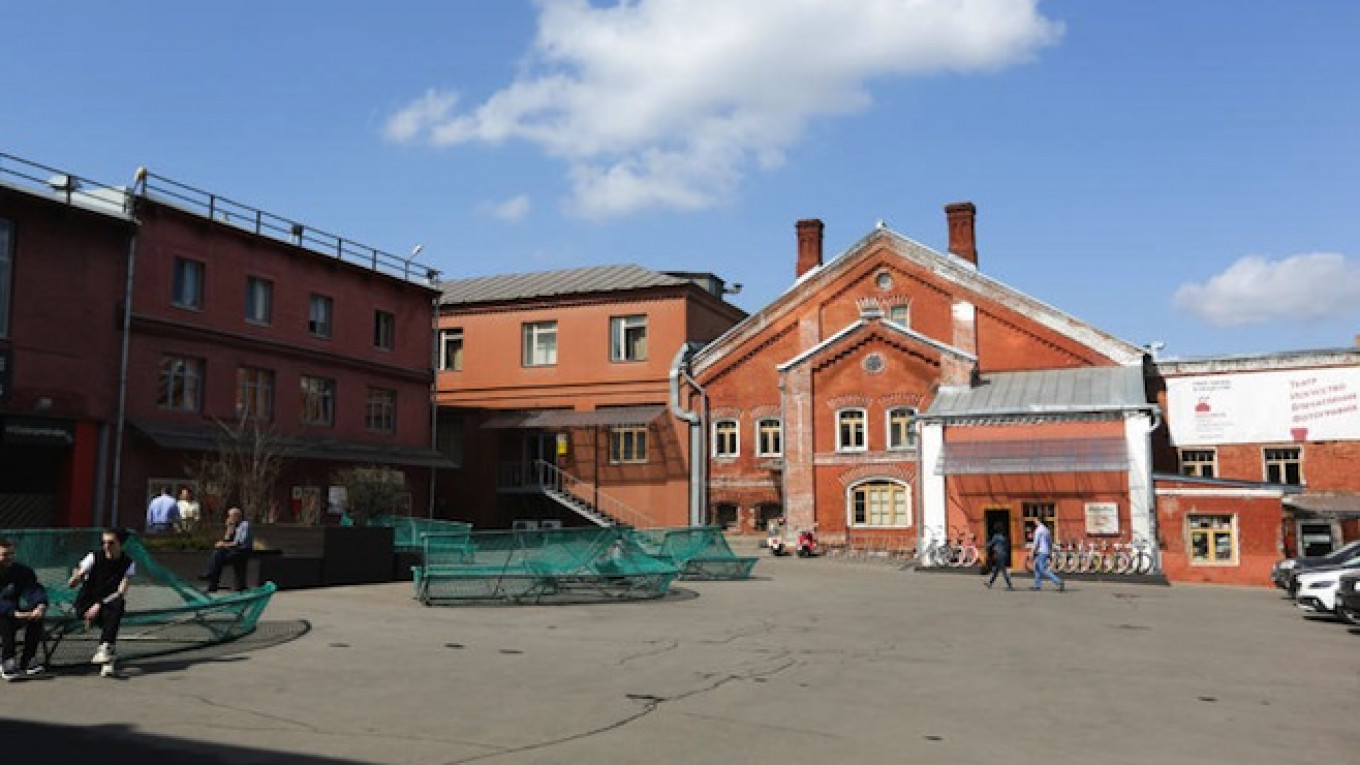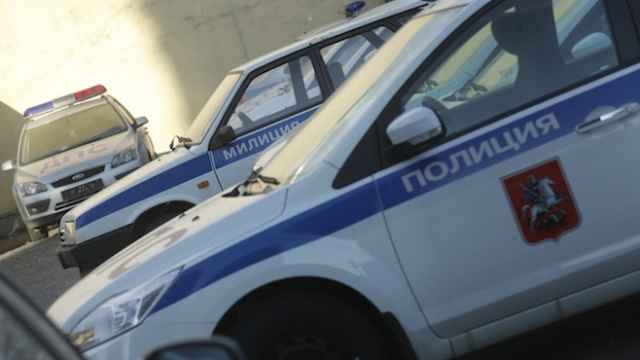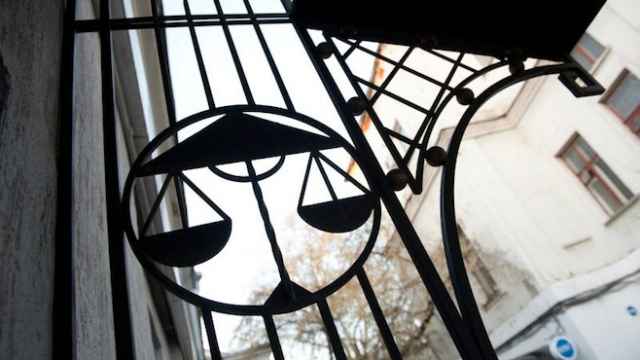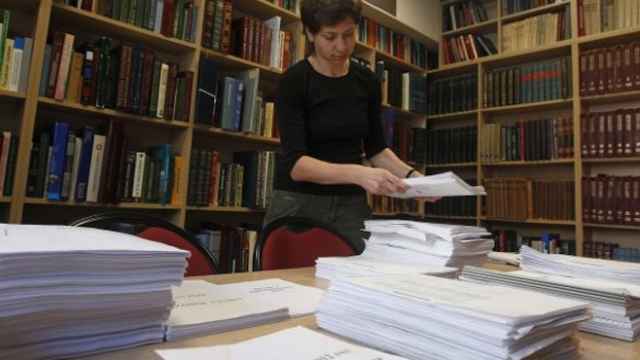The prominent Russian art gallery owner Marat Guelman is being evicted from an exhibition space in Moscow after hosting a charity auction for political prisoners, in the latest case of cultural institutions coming under pressure for associating with the opposition.
Guelman hosted an auction on Oct. 18 in aid of 12 people imprisoned for taking part in a mass protest rally on Moscow’s central Bolotnaya Ploshchad on the eve of Vladimir Putin's return to the presidency in 2012, along with other detainees whom supporters say are political prisoners.
Two days later, Guelman was served with an eviction notice from the company that rents out the building housing his gallery at Moscow's acclaimed Winzavod art center, located in a former winery.
“We received a letter voiding our rental contract for some bogus reason. Obviously, the [real] reason was the auction,” Guelman wrote on Facebook on Tuesday evening.
Guelman and his high-profile gallery have been told to vacate the premises they were renting by Nov. 5. According to the letter sent to him, a copy of which was obtained by The Moscow Times, Guelman's gallery owes the company a month's rent.
“As of Oct. 21, 2015, the tenant owes [the company that leases out the space] a month's rent,” which is grounds for voiding the contract, the letter reads.
Guelman told The Moscow Times his gallery was not behind with rent payments. “There weren't any [debts], and my accountant informed them of that,” he said Wednesday in written comments.
After a short round of negotiations, the owners of the building asked Guelman to sign a document stipulating that he would only use the premises to host exhibitions, he said.
“I wrote it and signed it. … An hour later they replied: 'Vacate the premises by Nov. 5,'” he wrote on Facebook.
It is not the first time that Winzavod has tried to evict the gallery, the art collector said.
“When Arkhnadzor [Moscow's architecture conservation movement] was being thrown out of everywhere with their exhibit about the destruction of Moscow, I took them in. [After that] we received a letter about voiding our rental contract, too. I wrote about it. The information appeared in the media, and Winzavod backed down. Now it's [happening] all over again, but more frenziedly,” he wrote on his Facebook page.
No Reprieve
Guelman's Facebook posts prompted a media storm on Wednesday, but, according to the gallery owner, this time it hasn't changed his landlords' minds: He told The Moscow Times that no one had contacted him about reaching a compromise since Tuesday.
“[Attention from] the media will not influence them. Apparently, some kind of line has been crossed, after which people have stopped caring about their reputations,” he wrote on Facebook.
A request for comment sent to Winzavod's administration by The Moscow Times went unanswered by the time of publication.
Winzavod's director Sofia Trotsenko told the pro-Kremlin Izvestia newspaper on Wednesday that the decision to evict Guelman was made because he was using the premises for other purposes than those outlined in the rental agreement. According to Trotsenko, all rental contracts with Winzavod prohibit the hosting of activities that do not constitute exhibitions.
“We could have voided the contract because of the auction, because it [the contract] outlaws political activities …,” she said. “But for us the main factor was that he planned to open a Montenegrin emigration center,” Trotsenko added.
Guelman denied to The Moscow Times that he planned to open an emigration center in his gallery.
"[There is a] consultation center … that is sponsoring our main program this year, because the program [is aimed at] introducing Balkan art," he said in written comments Wednesday. "The gallery has always had sponsors," he added.
Guelman, who currently lives in Montenegro, said he was not planning to reopen the gallery in Moscow or start a new project in the city. “It's not a good time to start anything new in Moscow,” he said.
No Isolated Case
It is not the first time cultural institutions in Moscow have faced difficulties because of their political activities. In December 2014 the independent theater Teatr.doc was evicted from compact premises in the basement of a building on Tryokhprudny Pereulok in the upscale Patriarch's Ponds district.
Formally the reason given for voiding the rental contract was the illegal remodeling of a window, but the theater team and its supporters said it was an attempt to punish them for politically controversial performances, such as ones devoted to the notorious case of Sergei Magnitsky, who died in detention, or the relationship between Putin and the former Italian Prime Minister Silvio Berlusconi.
After vacating the basement on Tryokhprudny Pereulok, the theater moved to premises on Spartakovskaya Ulitsa — only to be evicted once again in May, shortly after law enforcement officers unexpectedly attended a rehearsal of a play devoted to the Bolotnaya case. The theater currently occupies a space near Kurskaya metro station.
In 2013, Gogol Center, a Moscow theater run by the prominent director Kirill Serebrennikov, had to cancel the screening of a documentary devoted to the female protest group Pussy Riot. Serebrennikov published on his Facebook page a letter from Sergei Kapkov, then-head of City Hall's culture department, demanding that the screening be canceled.
“I used to say in all the interviews: 'There's no censorship in the theater,' … There is censorship in the theater! Cynical, meaningless and stupid,” Serebrennikov wrote.
The transfer of protest movements from politics to culture is not a new phenomenon, said Yelena Shestopal, head of the department of sociology and psychology of politics at Moscow State University's faculty of political science.
“It's part of our [Russian] tradition,” Shestopal told The Moscow Times in a phone interview.
“Think of Soviet times: Underground [sentiment] found its way into rock music, painting and theater. It's related to the political culture of our country — when we didn't have a civic society, protest sentiments went to non-political spheres,” she said.
Contact the author at [email protected]
A Message from The Moscow Times:
Dear readers,
We are facing unprecedented challenges. Russia's Prosecutor General's Office has designated The Moscow Times as an "undesirable" organization, criminalizing our work and putting our staff at risk of prosecution. This follows our earlier unjust labeling as a "foreign agent."
These actions are direct attempts to silence independent journalism in Russia. The authorities claim our work "discredits the decisions of the Russian leadership." We see things differently: we strive to provide accurate, unbiased reporting on Russia.
We, the journalists of The Moscow Times, refuse to be silenced. But to continue our work, we need your help.
Your support, no matter how small, makes a world of difference. If you can, please support us monthly starting from just $2. It's quick to set up, and every contribution makes a significant impact.
By supporting The Moscow Times, you're defending open, independent journalism in the face of repression. Thank you for standing with us.
Remind me later.






